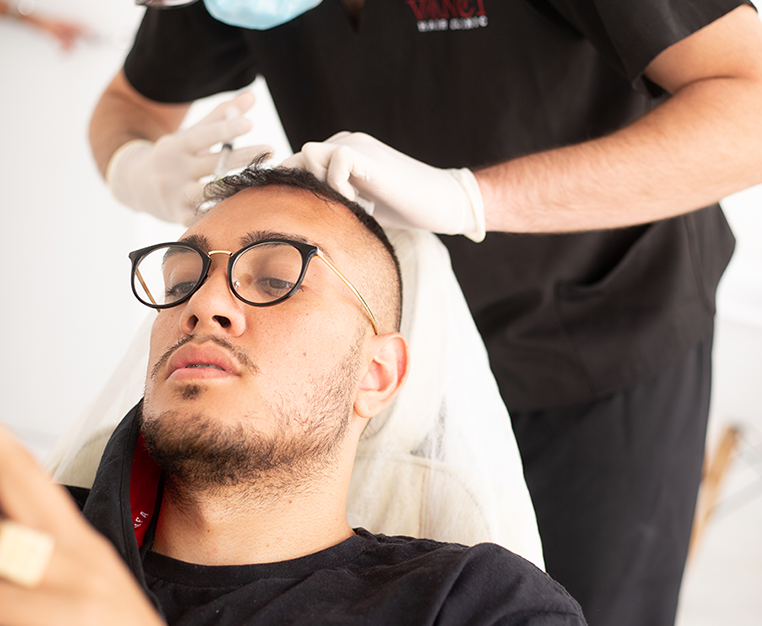Dandruff can be an embarrassing condition that causes the skin on the scalp to flake. Although it isn’t dangerous or contagious, dandruff can cause inflammation, discomfort and even hair loss if left untreated. So, if you notice those white flakes falling off your scalp onto your shoulders, you might want to pay more attention to your haircare routine and the products you use.
Thankfully, there are plenty of helpful ingredients in the beauty world to tackle dandruff and alleviate its symptoms. These include salicylic acid, apple cider vinegar and tea tree oil, all essential for scalp care. One ingredient you’ll often find in cosmetics and skincare that’s also good for a healthy scalp is urea. It may not sound too pleasant, but urea could be the ultimate solution to your dandruff and scalp issues.
Essential Truths About Urea For Hair
If you look at the ingredients in your makeup, skincare or haircare products, chances are you’ll find urea listed there. That’s because urea is an excellent humectant thanks to its ability to draw in and retain moisture while preserving the essential components of the product. So, should you give it a shot? Let’s delve deeper into this exciting haircare ingredient.
What Exactly Is Urea?
Also known as carbamide, urea is a naturally occurring moisturising compound found on the skin’s surface after the body breaks down protein. You’ll discover urea in various bodily fluids, including urine, sweat, human breast milk and blood.
As a humectant, urea can obtain moisture from the environment and draw it into the skin, including the scalp. It works to keep the skin supple and plump. Plus, it acts as an emollient that smoothens and softens the skin. With an improved scalp condition, your hair has a healthier foundation for optimal growth.
Why Use Urea?
If your scalp is dry, it can flake off easily and become more prone to irritation. If it’s too oily, on the other hand, it can cause skin cells to build up, along with dirt, grime and excess oils. By increasing moisture content, urea helps improve the quality and condition of the scalp. It balances natural oil production, prevents dryness and promotes healthy new hair growth.
In addition, urea has antifungal effects that help counteract bacterial growth, yeast and mould. It also soothes an itchy, dry scalp, reduces inflammation and lowers the chance of having dandruff.
Are There Any Side Effects?
Although urea is common in haircare and skincare products, there are several concerns regarding this ingredient. For one, it can release formaldehyde, an organic compound classified as a human carcinogen. That means urea may have the potential to cause cancer.
Additionally, urea can irritate the mouth, nose and eyes. So, when you use any urea-infused product, make sure you keep it away from those areas. Those with sensitive or infected skin should also steer clear of this ingredient to avoid allergic reactions. The key is finding the correct type of product for your hair and skin.
How Can You Include Urea In Your Routine?
Despite the potential side effects, there’s no denying that urea remains an effective ingredient in the battle against dandruff and various scalp and hair issues. That’s why it’s available in a range of haircare products on the market.
One way to incorporate urea into your haircare routine is to use a shampoo or conditioner that contains the ingredient. These products can be your defence against fungus and bacteria that cause flakes and an itchy scalp. Perhaps, you’re happy with your current shampoo and conditioner and want to stick to them. In that case, you can always choose a styling product that contains urea to moisturise and hydrate your locks.
Should You Use A DIY Treatment?
When looking to incorporate urea into your routine, you might consider using DIY treatments. While it may help you save some cash, it may not be suitable for your mane. That’s because it requires careful formulations to create a haircare solution beneficial for your strands and scalp but without the potential adverse effects.
You must remember that proper urea concentration is vital in a formula, so you shouldn’t use it in a DIY treatment. If the urea content is too high in a haircare or skincare product, it may exfoliate excessively, causing more harm than good. It’s preferable, therefore, to use only purchased products that have already been formulated with the right concentration of urea to take full advantage of its benefits.
Conclusion
Urea is an incredible ingredient that moisturises and hydrates the scalp, providing a healthy environment for hair growth and preventing various scalp issues. However, you must ensure you use a quality formulation from a reliable provider to avoid dealing with its potential adverse effects.
If you are experiencing a receding hairline or loss of hair, Vinci Hair Clinic can help. Often, the cause may be your choice of hairstyle. We can diagnose the problem and offer advice on the proper treatment to restore your hair. Get in touch today to book your free, no-obligation consultation with a Vinci Hair Clinic specialist!



